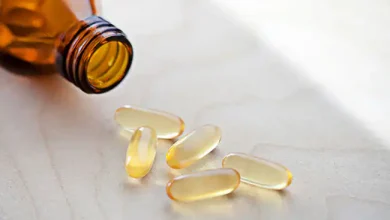The 5 Best Vitamins for Energy, According to a Natural Dietitian

Do you ever feel like the wind has gone out of your sails? Shavonne Morrison, MS, RD, LD, explains which vitamins provide you energy and attention for a long time.
Do you suffer from a mid-afternoon (or mid-morning, or post-lunch) slump? Do you ever feel as if a nap is calling your name? It’s a fast-paced world, and if you’re like most people, you might use a boost of energy during the day.
Before we look at the greatest energy vitamins and supplements, let’s look at some of the most prevalent reasons of fatigue.
Causes of Low Energy
Low energy levels can be caused by a variety of factors, but you may already be aware of some of the habits that contribute to weariness.
Caffeine Crashes
Drinking caffeinated beverages on an empty stomach, especially on an empty stomach, may be a contributing reason to poor energy.
Caffeine in beverages like coffee can cause a burst of energy and a brief boost in mental acuity. However, a crash is common, leaving you feeling worse than you did before you had your morning coffee.
What are the best vitamins for energy?
Here are some of the best energy-boosting vitamins, minerals, and plants, as well as some tips on how to stay focused and productive.
1. L-tyrosine
L-tyrosine (L-tyrosine) is an amino acid (aka the building blocks of protein). Tyrosine is required for the creation of catecholamines, which are essential for energy production and stress control.
Tyrosine is also required for the creation of serotonin and dopamine (neurotransmitters that affect your mood and energy levels). It’s also required for the production of adrenaline and norepinephrine, chemicals involved in the fight-or-flight stress response.
While research on healthy human adults is limited, some evidence suggests that L-tyrosine levels can be raised through diet. Plus, taking an L-tyrosine pill with a protein-rich meal boosts the advantages. This is because the body can produce tyrosine from phenylalanine, an amino acid found naturally in some meals.
Finally, L-tyrosine benefits include better memory and mental alertness.
2. Rhodiola
Rhodiola rosea is a flowering plant native to Asia and Europe. It’s a stress-relieving adaptogen that works by affecting brain neurotransmitters like serotonin, dopamine, and norepinephrine. It might also aid with mental focus.
Participants in a 2015 study who took rhodiola for two weeks experienced less stress, aggression, disorientation, and bad mood. In addition, according to a 2018 study, rhodiola can help prevent chronic stress and its effects.
Overall, the evidence supports rhodiola’s stress-relieving properties, demonstrating that it is a potent herb for mental health.
3. Ashwagandha
Ashwagandha is an adaptogenic herb, which means that consuming its roots might help the body cope with stress. One study discovered that it can help with stress-related memory loss.
Then, in 2012, a tiny but well-designed study found that persons who take an ashwagandha supplement have significantly less stress than those who take a placebo.
4. Eleuthero
Another adaptogenic plant, Eleutherococcus senticosus (previously known as Siberian ginseng), has been shown to improve athletic performance and endurance in rats.
The most important investigations on this herb were conducted decades ago in Siberia, although the data has been reviewed numerous times since then. We do know that eleuthero may assist to reduce inflammation and improve adrenal health based on the evidence we have.
While there is some debate over the advantages of this herb, many people who regularly use herbal medicines swear by it.
5. Vitamins B5 + B6
B vitamins are commonly found in a number of energy beverages and supplements, so you may be familiar with their energy-promoting advantages. B5 and B6 are the best B vitamins for energy, as they’re particularly important for energy production and stress control.
That’s because they’re important parts of the body’s energy and stress-management systems. According to some data, a vitamin B5 shortage might impair adrenal function and cause weariness.
Vitamin B5 supplementation, on the other hand, can strengthen the adrenals and help them adapt to stress more effectively, resulting in healthy energy levels.
The active form of vitamin B6 is therefore required for the production of serotonin and dopamine. B6 is also required for the production of healthy red blood cells, which transport oxygen throughout the body. B6 is required for the production of mood-regulating and stress-relieving substances in the brain, just like B5.




